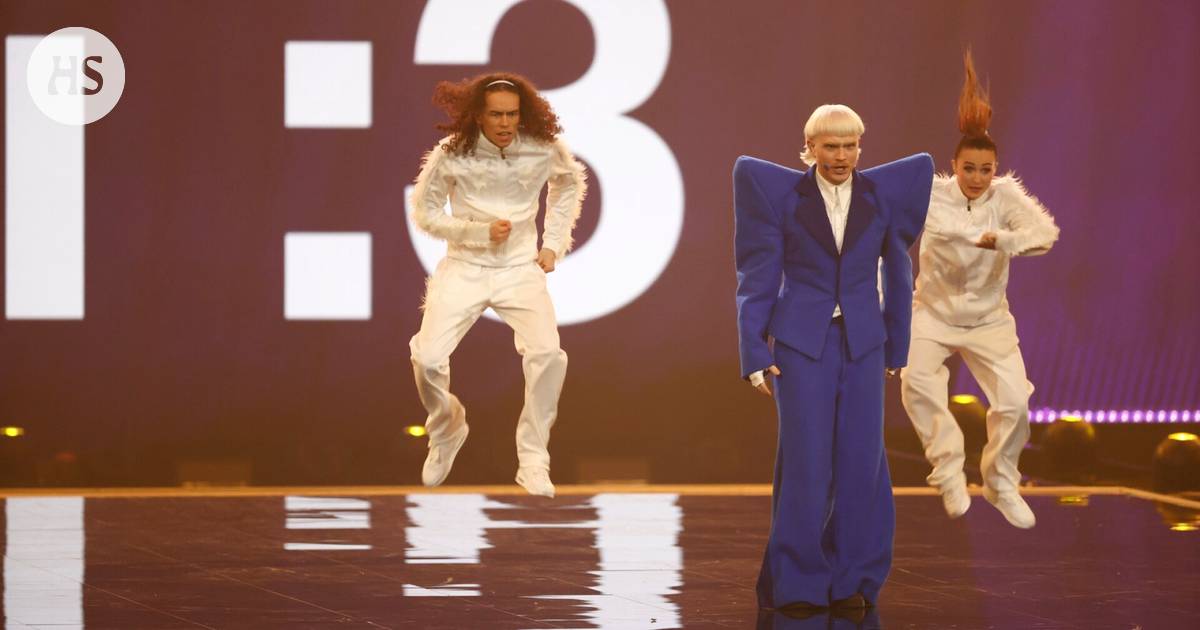Eurovision | After the chaotic Eurovision, an external investigation was launched
The summary is made by artificial intelligence and checked by a human.
There will be changes to the management of Eurovision based on the report.
The investigation was launched after the chaotic storms of spring.
Ebu is also considering hiring a welfare officer.
Eurovision changes are coming to the management, the European Broadcasting Union, which organizes the competition Ebu informs.
The changes are made on the basis of a recently completed external report, the release states.
This year’s Eurovision was chaotic: Israel’s participation in the song contest attracted loud opposition and the Dutch representative was dropped from the final at the last minute under unclear circumstances.
According to the report, the management of the event needs confirmation. To meet this need, Ebu has created two new management positions: ESC Director and Head of ESC Brand and Commercial.
To tasks no one has been appointed yet. The new manager supervises the current manager (Executive Supervisor) Martin Österdahlin and the work of a future brand and commercial manager. He reports to the General Manager of Ebu Jean Philip De Tenderille.
The American magazine De Tender explains the changes in more detail Varietylle. According to him, Ebu is considering getting a welfare producer, who would take care of the welfare of the Eurovision participants during the competition.
According to De Tender, the contestants could be better prepared for the sudden publicity brought by Eurovision.
“When you get selected for Eurovision, in most cases, an artist who is not known internationally suddenly gets to do so [kansainvälisesti tunnetulle] to the stage. We have learned that we should prepare the artists better for that.”
Competitors should also become even more familiar with the Eurovision rules – among other things, how fellow contestants are treated, De Tender tells Variety. This probably refers to the representative of the Netherlands Joost Kleinin for use in the spring Eurovision.
Klein covered his face with his country’s flag during the press conference as an Israeli representative sat next to him Eden Golan spoke. Later, Klein’s participation in the final was denied due to an incident with the event’s cameraman.
Other development proposals given in the report include stricter restrictions on access to the back room of the Eurovision stage and the establishment of a working group specialized in crisis management.
The politics of Eurovision has been a long-standing point of contention. Ebu says the event is non-political, and participants are prohibited from taking different political positions during the competition. However, various political tensions have become topics of conversation at Eurovision throughout the contest’s history.
This was highlighted even more this year when Israel, which is at war in Gaza, was allowed to participate in the song contest. Israel’s participation was opposed, for example, by demonstrations in the host city of Malmö.
De Tender is aware of the problem, but he still insists on the apolitical nature of the event.
“Because the event has become so big, geopolitical tensions can affect the event and the competitors. We allow freedom of speech. We saw the demonstrations in Malmö. As a public service medium, it is important for us that people can express their opinions and views. But Eurovision is apolitical and it must remain apolitical,” he tells Variety.
“We need to consider reviewing the rules and ways we can mitigate the impact of external events.”
Eurovision will be held in Switzerland next year. The singing competition is celebrating its 70th anniversary at that time.
